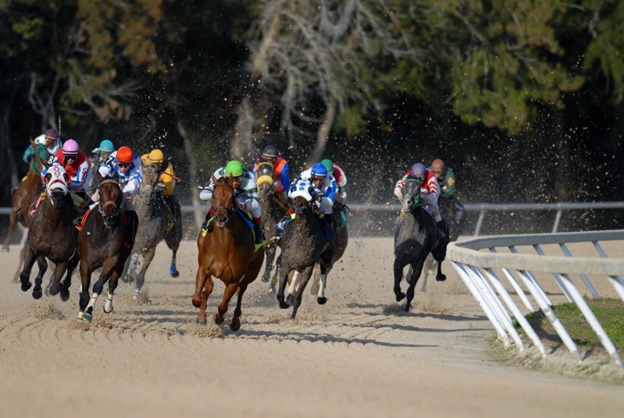The Grand National stands as a cherished tradition of British sport, adored by the masses and often hailed as the pinnacle of steeplechase events worldwide. This race had witnessed a tapestry of captivating historical moments, from Red Rum's remarkable consecutive victories to the unforgettable year when an IRA bomb threat led to the race's untimely cancellation. However, none can rival the intrigue and fascination surrounding the 1993 edition. With countless viewers from across the globe glued to their screens, horses valiantly traversed the arduous course, only to have their efforts invalidated as the race was ultimately declared null and void. Casino online customers would certainly be disappointed if betting on sporting events could be made this year.
What occurred?
All eyes were fixated upon Aintree Racecourse, drawn to the unfolding spectacle of the 1993 Grand National. However, the anticipated commencement of the race was impeded by a striking display of activism as fervent animal rights advocates converged near the first fence. This scene bore a striking resemblance to an incident that had transpired two years prior, a testament to the Grand National's longstanding status as a focal point for critics of horse racing. Moments before the race commenced, the activists stormed the course, prompting riders to rise in their saddles, signaling the starter to the ensuing commotion.
The subsequent clearance of the course proved time-consuming, leaving many horses in a state of unease. Though trepidation enveloped several jockeys, the resolute starter ushered them forward, issuing his commands. An earnest endeavor was made to set the race in motion, but persistent rainfall had rendered the tape intended to rise upon the race's initiation excessively weighty. It failed to ascend swiftly enough, ensnaring multiple runners, and prompting the starter to declare a warranted false start.
Undeterred, the starter valiantly endeavored to resume the race for the second time. Yet, to their dismay, the tape again entangled a handful of competitors. Despite another false start being called, the flagman entrusted with communicating this critical information either faltered in promptly raising his flag or went unnoticed amidst the tumultuous scene. Consequently, 30 of the 39 runners, misinterpreting the stewards' subsequent cries as further interference from the protesters, forged ahead. They gallantly leaped over the first fence, steadfast in their belief that the race had commenced.
What became of Bets?
The Grand National has always been a race that attracts significant betting activity, with hundreds of millions of pounds wagered with bookmakers. Considering the unprecedented circumstances surrounding the voided race, most bookmakers assured punters that their stakes would be fully refunded. However, they appealed for patience, as the extensive amount of money collected would have been processed and required meticulous paperwork.
There were discussions regarding the possibility of rescheduling the race for a later date, which could have potentially allowed bets to remain valid. However, this notion was swiftly dismissed when it became apparent that the next available date for the race would fall in November. Not only would this have disrupted the horses' seasonal schedules, requiring them to conclude one season and commence another, but it also risked diminishing the prestige of the event, being too close to the subsequent 1994 Grand National. Consequently, bookmakers were compelled to issue refunds amounting to approximately £75 million, reflecting the magnitude of the financial implications caused by the race's avoidance.































